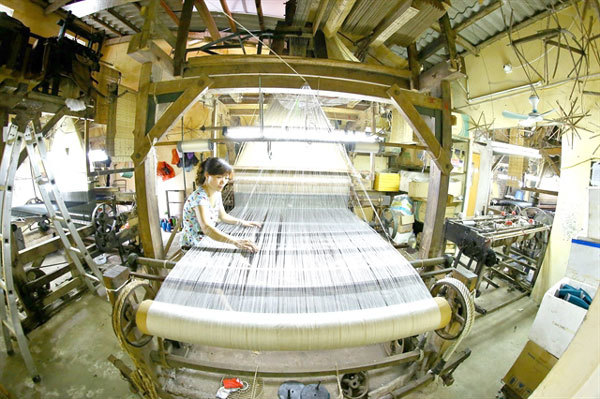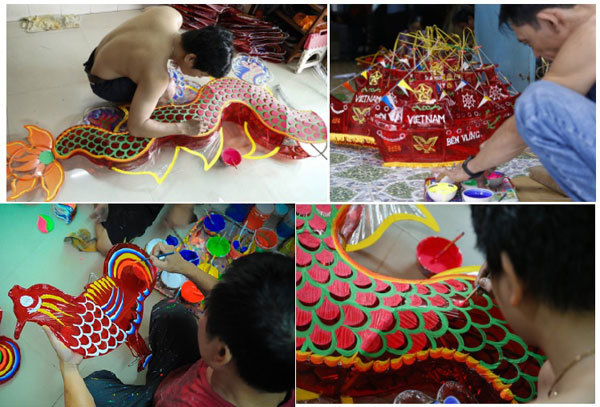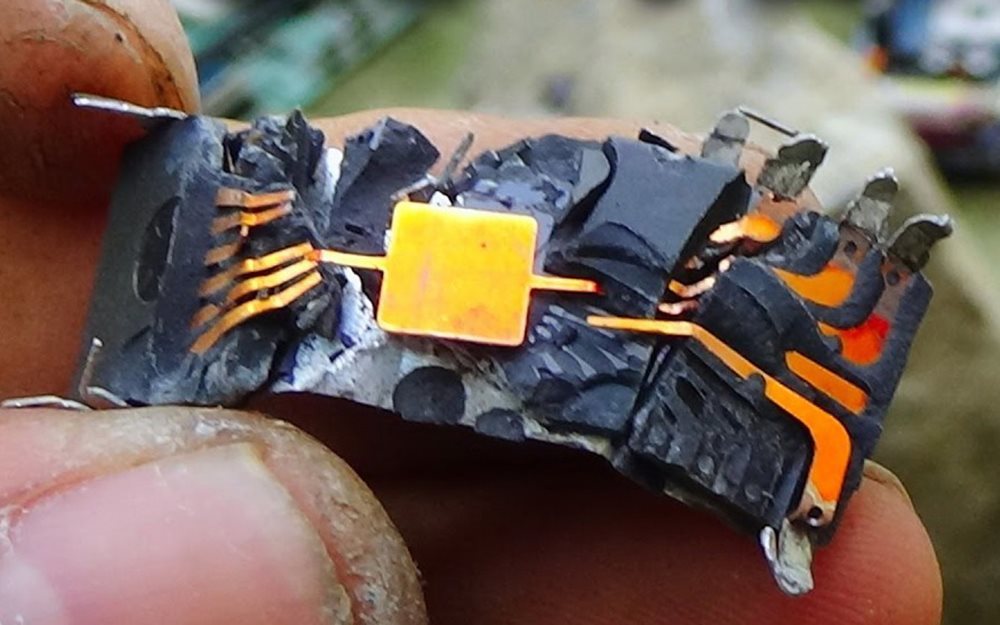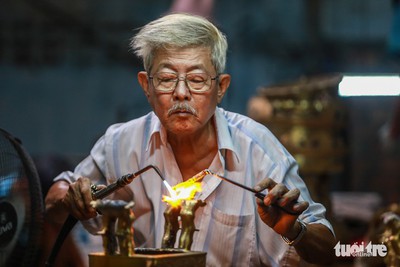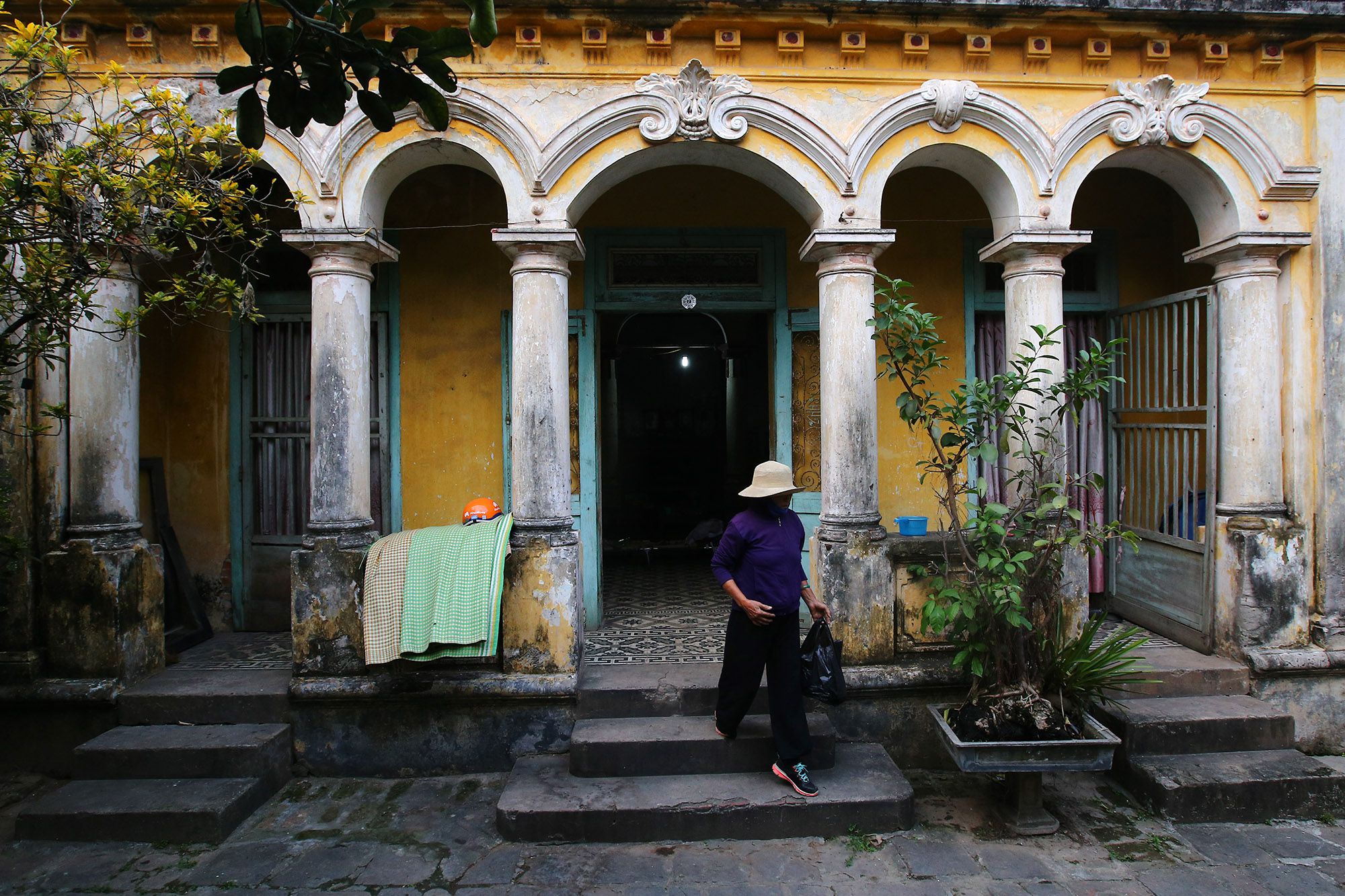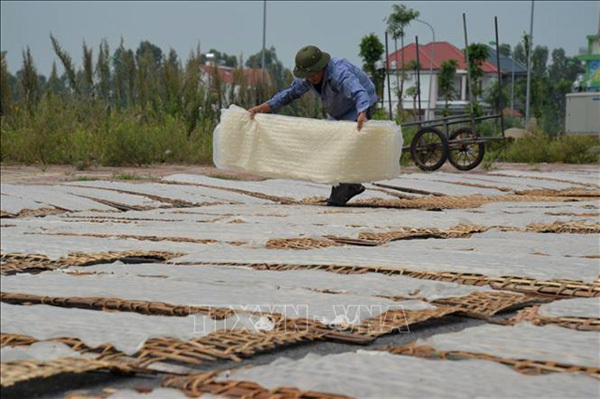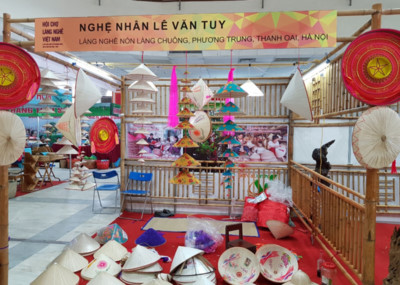- © Copyright of Vietnamnet Global.
- Tel: 024 3772 7988 Fax: (024) 37722734
- Email: [email protected]
craft villages
Update news craft villages
Technology vital for craft villages to thrive
Vietnam's international integration has brought both challenges and opportunities for traditional craft villages, with the use of scientific and technical advances in production considered vital for them to thrive.
Phu Binh villagers strive to preserve the craft of lantern making
Despite facing challenges from COVID-19 and the fierce competitiveness of imported toys, Phu Binh villagers in district 11, Ho Chi Minh City, have exerted every effort to preserve their craft of lantern making,
Lantern making village in HCM City quiet ahead of mid-autumn festival
Located in District 11 of HCM City, Phu Binh lantern making village is enduring a period of slower business than usual in the buildup to the Mid-Autumn Festival, largely due to the impact of the COVID-19 epidemic.
Finding gold in computer, smartphone waste
 Scientists say exploiting gold mines is not the only way to obtain gold. The source with the most potential is electronic waste. For every ton of smartphone waste, there are 350 grams of gold.
Scientists say exploiting gold mines is not the only way to obtain gold. The source with the most potential is electronic waste. For every ton of smartphone waste, there are 350 grams of gold.
Quat Dong embroidery village
 Located in Thuong Tin district, about 25 kilometers south of Hanoi, Quat Dong embroidery craft village is considered the cradle of embroidery in Vietnam with its brand name famous throughout the northern region and nationwide.
Located in Thuong Tin district, about 25 kilometers south of Hanoi, Quat Dong embroidery craft village is considered the cradle of embroidery in Vietnam with its brand name famous throughout the northern region and nationwide.
Binh Dinh moves to develop sedge mat brand
 The hustle and bustle of the sedge mat trade in Hoai Chau Bac commune, Hoai Nhon district, Binh Dinh province is an exciting scene for visitors.
The hustle and bustle of the sedge mat trade in Hoai Chau Bac commune, Hoai Nhon district, Binh Dinh province is an exciting scene for visitors.
Craft villages benefit from e-commerce
 In recent years, craft villages in Ho Chi Minh City have introduced their products on online trading platforms. This has helped the villages trade efficiently and assert their brand value.
In recent years, craft villages in Ho Chi Minh City have introduced their products on online trading platforms. This has helped the villages trade efficiently and assert their brand value.
My Nghiep ancient weaving village in Ninh Thuan
 As the cradle of brocade weaving of the Cham ethnic people, My Nghiep craft village is currently one of the two most famous traditional craft villages of Ninh Thuan Province.
As the cradle of brocade weaving of the Cham ethnic people, My Nghiep craft village is currently one of the two most famous traditional craft villages of Ninh Thuan Province.
Vermicelli village busy ahead of Lunar New Year 2020
 The Thang Long vermicelli making village in Thanh Hoa province is busy at the moment for completing orders for the upcoming Lunar New Year (or Tet).
The Thang Long vermicelli making village in Thanh Hoa province is busy at the moment for completing orders for the upcoming Lunar New Year (or Tet).
Hoi An to restore carpentry village
 Authorities of the central city of Hoi An in Quang Nam Province have approved a project to restore and develop Kim Bong Carpentry Village.
Authorities of the central city of Hoi An in Quang Nam Province have approved a project to restore and develop Kim Bong Carpentry Village.
Dong Ngac, one of Hanoi’s oldest villages
 Dong Ngac is one of few villages in Hanoi which have still kept its cultural features and historical architecture despite the impacts of rapid urbanisation.
Dong Ngac is one of few villages in Hanoi which have still kept its cultural features and historical architecture despite the impacts of rapid urbanisation.
Craft villages develop despite urbanisation
 Urbanisation in rural areas has caused many traditional craft villages to shrink over the years.
Urbanisation in rural areas has caused many traditional craft villages to shrink over the years.
Young people and passion for reviving craft villages
 Many young people choose to come back to their roots to contribute to the revival of traditional craft villages.
Many young people choose to come back to their roots to contribute to the revival of traditional craft villages.
Hanoi, the home of the quintessential craft villages
 Known as the land of traditional crafts, Hanoi has the highest number of craft villages in Vietnam: 1,350, nearly one-third of the total number.
Known as the land of traditional crafts, Hanoi has the highest number of craft villages in Vietnam: 1,350, nearly one-third of the total number.
Keeping the fire of hand embroidery alive
Since Vietnam became a republic in 1945, many craft villages have moved away from their traditional sources of income. One start-up business is trying to update and maintain the 300-year-old craft of embroidery
Next-generation craft villages attract investors
VietNamNet Bridge - The daring business plans in traditional craft villages have attracted billions of dong worth of capital.
Mekong Delta craft villages busy in peak season
VietNamNet Bridge – Local people in craft villages that make fishing nets and other tools are now busy serving the needs of fishermen during the annual flooding season.
Changes in target markets worry wooden furniture exporters
VietNamNet Bridge - Wooden furniture manufacturers have been warned that they will face more trade barriers as export markets have applied new policies to restrict imports.
Treating pollution in craft villages high on Hanoi’s list of priorities
At least 100 percent of monitored craft villages have at least three indicators exceeding the permitted levels, while 35 percent of households are not treating treat waste water before discharging it into the environment.
Viet Nam’s craft villages harm the environment
Some 5,000 craft villages across the country have been seriously polluting the environment and threatening the health of residents in surrounding areas.
